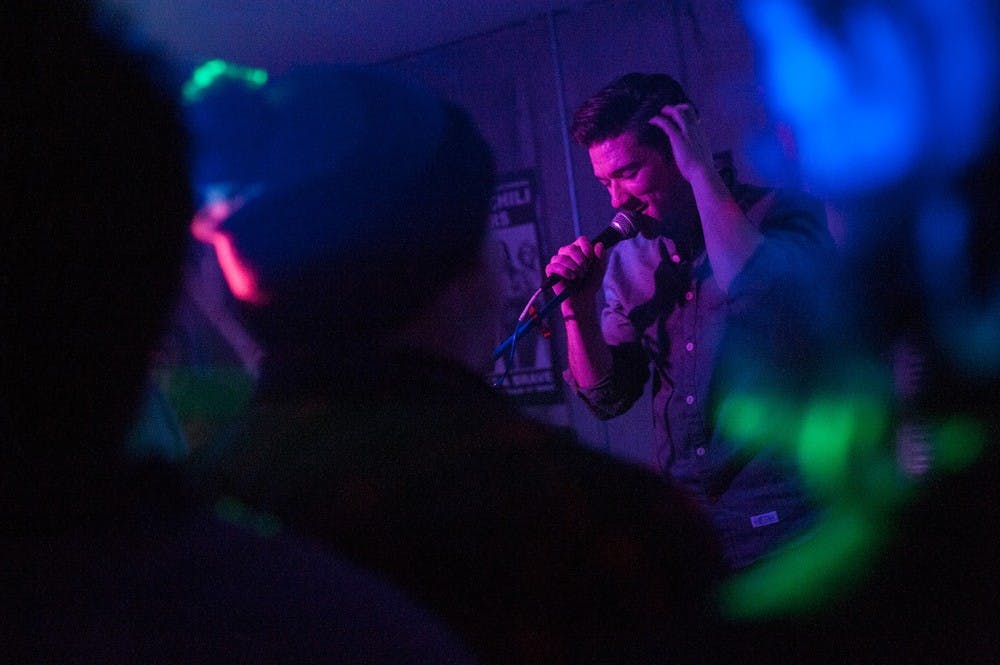Some choose to head to house shows in Athens as opposed to Uptown bars, although these shows are occasionally shut down by the police for noise levels
Some Ohio University students choose to avoid weekend nights listening to music at crowded uptown bars by soaking in tunes at a different setting: concerts held in Athens’ homes.
Those concerts, known by most as “house shows,” often take place in a legal gray area. Athens Municipal Code doesn’t permit things that occasionally happen at the events — selling alcohol without a permit, charging people to hear music in a residential area and excessive noise.
But those involved in the Athens’ house show scene said steps are almost always taken to avoid breaking the law.
Homes are often soundproofed with heavy blankets in an attempt to keep noise from bleeding into other properties, said Mitch Rossiter, a senior studying integrated media. Rossiter said he generally attends six house shows per month.
Most hosts also inform their neighbors before hosting a show to avoid a visit from the police, said Megan Fair, a sophomore studying journalism.
Athens Municipal Code reads that any noise heard outside a property’s lines between 12 a.m. and 7 a.m. on Saturday and Sunday morning that exceeds 85 decibels or is able to be heard from 50 feet away could result in a $100 fine for a first violation.
“(Police coming) can end the show early, which is always a huge bummer for the bands who travelled to play here,” Fair said. “It’s just not fun to have the cops show up when you’re trying to put on a show.”
The municipal code also states the selling of alcohol at a property without a permit, especially to minors, is illegal.
Rossiter said that’s something he has seen happen before, though he discourages those alcohol sales entirely.
“The shows that I go to … it’s mostly BYOB, and people put a sign on the door that says ‘no drinking unless you’re 21,’” Rossiter said. “I’ve seen people selling booze at shows. ... A lot of the houses I go to don’t do anything like that because that’s very illegal, especially if you’re selling to underage kids.”
City officials are primarily concerned with houses that repeatedly host shows and charge for attendance, said Councilwoman Chris Fahl, D-4th Ward.
“If you hire a band and play for a weekend, you know … people do that,” she said. “Everybody does that.”
Fahl said she’s most worried about houses that violate the city’s zoning laws by charging for admission.
“That is against zoning,” she said. “Just like I couldn’t open (a store) up in my house.”
{{tncms-asset app="editorial" id="639057c6-a4e0-11e4-ab8e-470d61ab7f11"}}
Fair said the shows she attends aren’t like commercial venues, where someone might wait at the door to collect admission. Most of the house shows are very informal, she said, and hosts don’t typically make a profit.
Despite potential pitfalls, Fair and Rossiter said the house show scene is important and serves as a social outlet for those who don’t participate in “mainstream” culture.
“I don’t feel comfortable on Court Street. … Court Street is not a safe space,” Fair said. “These DIY spaces and these shows at the Skull are a space where I know where I can go, and I can feel safe, and I’m surrounded by people that share similar interests.”
@JeremyHTweets
jh082913@ohio.edu






